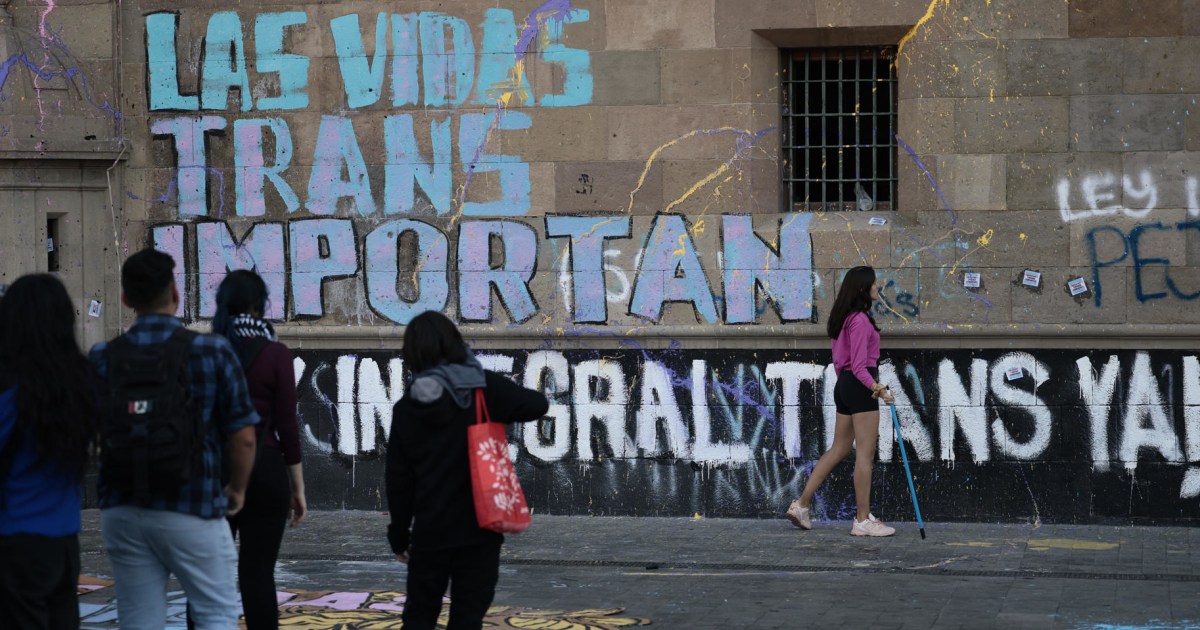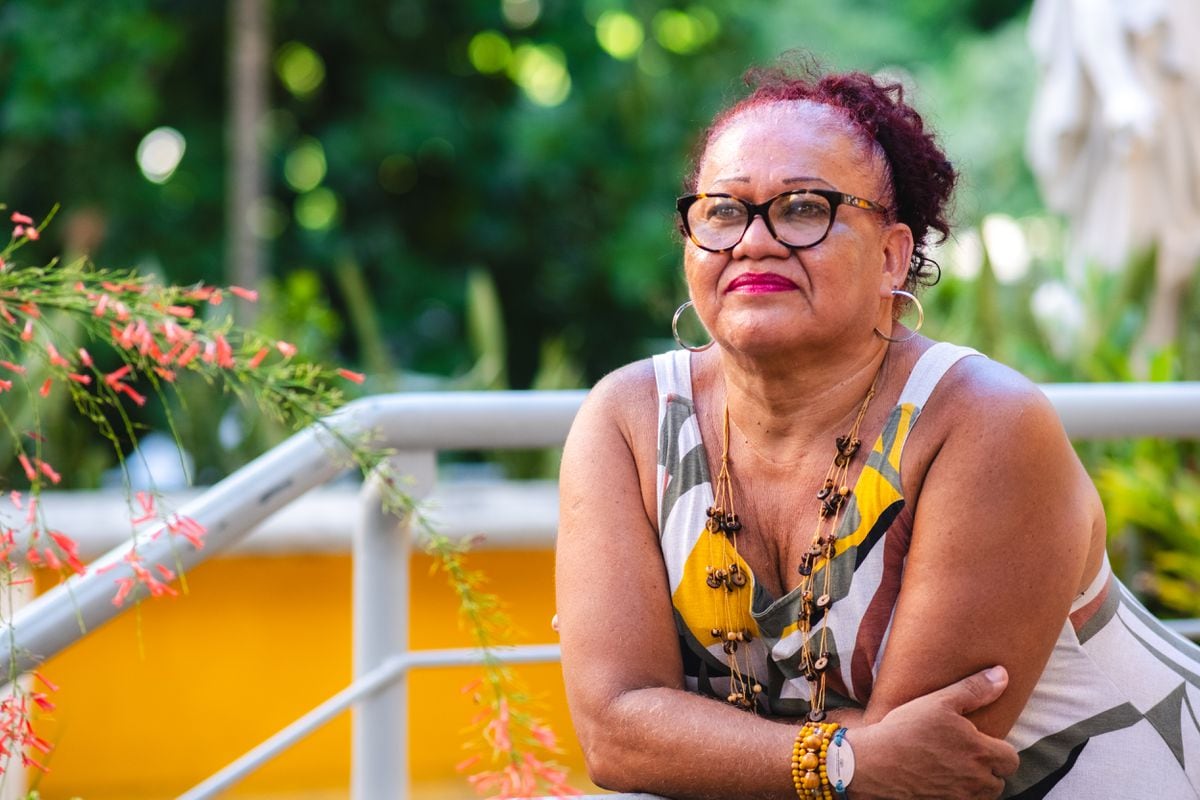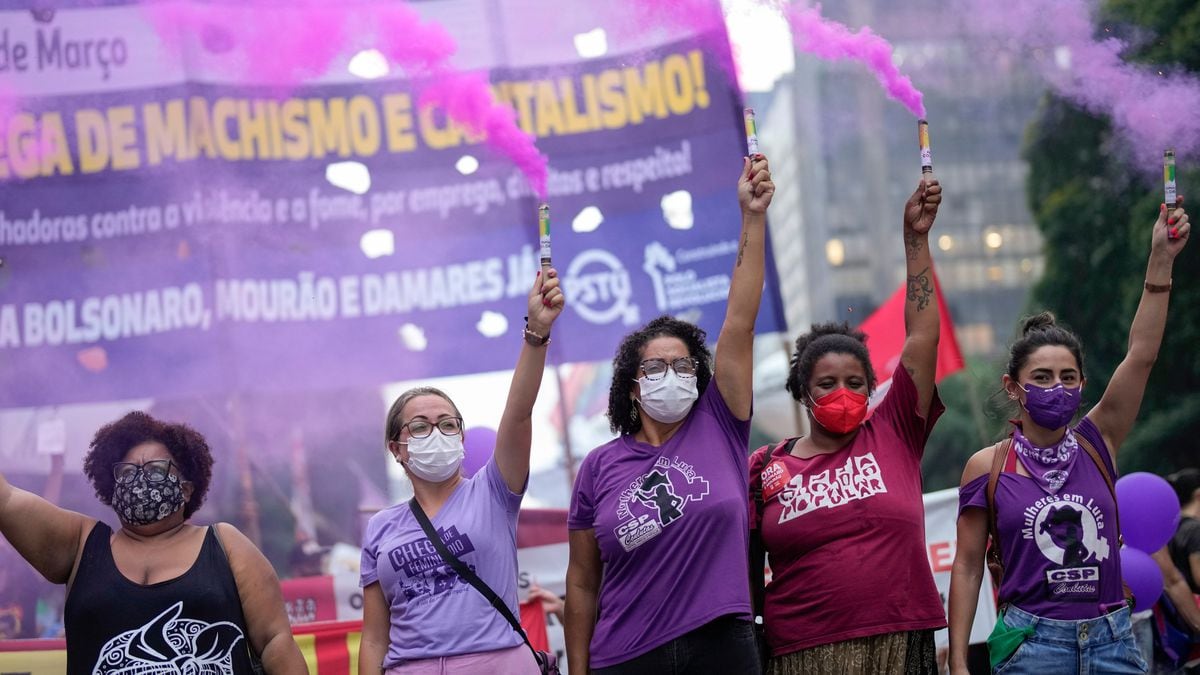Mostly white and male.
That is, historically, the portrait of Brazilian politics.
But, in the municipal elections of 2020, a series of candidacies hope to change that panorama.
According to data from the Superior Electoral Court (TSE), 49.9% of the candidates in Brazil have declared themselves black or mestizo in these elections.
This year there is also a record number of transgender people who aspire to mayors or council positions.
There are more than 270 nominations of confirmed trans people - in party lists that go from left to right -, more than triple the number in 2016, when 89 trans people ran.
In Curitiba - the eighth most populous city in Brazil, with almost two million inhabitants - it is the first time that a trans woman opts for a position in the Executive.
At 68, the psychoanalyst and sociologist Letícia Lanz, from the Socialism and Freedom Party, aspires to the mayoralty of the capital of the state of Paraná, heading a 100% female list, with lawyer Giana de Marco as vice mayor.
She is the only trans candidate running for city council in the Brazilian capitals.
Lanz was born in the state of Minas Gerais, but 25 years ago he chose the southern municipality to live with his wife, the psychologist Ângela Autran, with whom he has three children and five grandchildren after 43 years of marriage.
Among its main proposals is to promote what it calls the “care economy,” which includes allocating abandoned properties to the homeless and producing an urban model that benefits the periphery, not just the center and the upper-class neighborhoods of Curitiba.
“My proposal is that there be a more sociable and collective life.
We are living a collective crisis, people are helpless and abandoned ”, he says.
In the capital of Paraná, of the 16 candidates running for mayor of Curitiba, six are headed by women.
Contrary to what was said in a letter released by members of his party in July, which spoke of a "local program to confront the bourgeoisie," Lanz defends dialogue.
“The vision of women is playful.
The man's, warlike.
Confrontation is a macho word.
The political and economic nucleus is the bone that men do not want to let go of, and that is why it is very difficult for women to access it, especially trans women, who are the last monkey, ”reflects the candidate, who is also an expert in Gender and Sexuality and master's degree in Sociology.
Managing conflicts is an important part of the life of the candidate who, although she identified with the female from a young age, began the gender transition after turning 50. “I experienced a great conflict and, if it were not for feminism, she will be locked up in the closet until today ”, he says.
Having survived a heart attack in 2008 made Lanz consolidate her will to live as a woman, which she had cultivated since childhood.
“The transition was very hard, I had been a very open person all my life, and so was my wife.
We have always cultivated a good vision of life, but it is not easy to survive in a corseted society. "
She remembers, for example, that the resolution that stopped considering transsexuality as a disease is still recent.
It was not until 2018 when the WHO excluded transsexuality from the list of mental disorders of the International Classification of Diseases (ICD).
The covid-19 pandemic did not prevent him from seeking votes in the streets, even if he had to wear a mask and face shield.
These are also the first municipal elections in Brazilian history in which trans men and women candidates can choose their commonly used name at the polls.
If it weren't for the rule that was passed two years ago, voters would not recognize the names next to the photos of the candidates when voting, but would instead vote with the person's birth name.
The change was an old demand of the social movements, as Ana Cláudia Santano, professor of Law and researcher at the Observatory of Electoral Law of the Federal University of Paraná (UFPR) points out.
"Due to lack of regulation, the name of common use was not used, which generated embarrassing situations when the registry name with a photo that did not fit", he explains.
At least 165 candidates opted in 2020 for their felt names instead of those assigned to them at birth, all of them for legislative offices.
Trans candidates from the left, center and right
The 37-year-old debutant, Aghata Ferreira, of the MDB (Brazilian Democratic Movement), the highest representative of the so-called Centrão –group of center-right parties in the National Congress–, aspires to a position as councilor in the city of Criciúma, State of Santa Catarina .
Hairdresser and Pedagogy student, she has been dedicated to social work for 20 years, and that will be her central agenda if she gets the position.
When the party asked him to appear, he decided that it was the opportunity to contribute to developing public policies in that area.
“A swallow does not make the summer.
When the MDB proposed it to me, we chatted and they gave me a lot of freedom.
We want to make a team with new ideas.
I'm not from the right or the left, I fight for the social, which is the basis of everything.
How is a child who lives in a house where his father and mother are unemployed going to go to school? ”Asks Ferreira, who is also the party's Diversity secretary in Criciúma.
In Espiritu Santo, an electoral list of transgender women is run by the Brazilian Women's Party (PMB), ideologically aligned to the right, for the mayor of Cariacica, a city with almost 390,000 inhabitants in the metropolitan region of Vitória.
Bianca Biancardi, 52, and her deputy, Josi Milagre, identify with the ultra-conservative president Jair Bolsonaro, whom the candidate supported in the second round of the 2018 general elections, especially for the banner of the fight against corruption.
In his opinion, the transphobic statements of the Brazilian president are a thing of the past.
“I am a voter for Bolsonaro and I feel represented by him.
We lived a very corrupt policy.
That discouraged me.
The homophobic statements he made, everyone knows, are a thing of the past, ”says Bia (as she prefers to be called), a businesswoman and owner of a beauty salon in the city for 35 years.
The opportunity that the candidate had to work in a beauty salon at the age of 17, a few years after beginning to identify with the female gender, is something that she values very much.
Being able to work with a contract, he stresses, is essential to prevent trans people from having to resort to prostitution to survive.
The National Association of Transvestites and Transsexuals (ANTRA) estimates that 90% of trans people resort, at least once in their life, to this activity in Brazil.
"They are girls abandoned by their families, who leave school and who would not be on the street if they had a chance," says the candidate.
Bia praises the work of the Minister of Women, Family and Human Rights, Damares Alves, to improve the employability of the trans population.
“She has this project of training trans girls in the area of technology, which is something I want to copy in Cariacica.
The good must be copied ”, he says.
Recently, the candidate denounced her exclusion from an electoral act, by the evangelical bench of the municipality.
“It was for being a transgender woman.
I am a Catholic Christian and, even so, I was excluded, ”she laments.
In mid-October, participants in an online seminar on the elections promoted by the National LGBTI + Alliance were victims of
zoombombing
.
In other words, the act was invaded and, on the screen, messages and images of Nazi and discriminatory tint appeared.
“This indicates that, although these candidacies arrive, they are also more attacked.
The status quo is sensitive to any kind of movement that comes with the intention of changing it ”, emphasizes professor Ana Cláudia Santana.
The president of ANTRA, Keila Simpson, reinforces that the increase in the participation of the trans population in politics is related to the urgency of combating violence against transgender women and men in Brazil.
The country leads the sad ranking of the NGO Transgender Europe of countries that kill the most trans people.
In May of this year alone there were 38 murders.
“That made people start fighting in political parties to find a way to reduce it.
There is a political awakening of trans people.
Trans bodies are already political by nature, but contesting an election is a victory against everything and everyone, of a population relegated to the margin, ”says Simpson.
According to the president of ANTRA, the space for trans people is different in each municipality, which explains the adherence to parties with such different ideologies.
“Obviously, for us, opting for the right and the extreme right is a surprise, but we do not condemn it.
That was probably the space that was opened to them and they seized the opportunity ”.
As a plan for the future, ANTRA intends to hold political training courses and seminars.
“Educated, informed and knowledgeable about the ideologies of each acronym, they will be able to understand the political spectrum.
Being on the right, left or center, is a personal decision ", says Simpson and ditch:" We want to form a group of even stronger people to contest future elections. "








/cloudfront-eu-central-1.images.arcpublishing.com/prisa/C2FM2QOF3ZFL3E6LIEYPE5ZBNA.jpg)